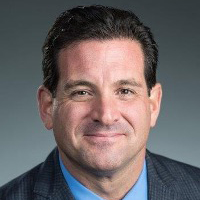Retirement is no longer a brief chapter at the end of life’s journey as it was in the first half of the 20th century. Instead, it has become an extended phase lasting longer and longer, requiring extensive planning and consideration. In fact, according to a recent study by Northwestern Mutual, Americans believe they will require $1.25 million to enjoy a comfortable retirement. But can you be confident that the amount is enough? Is there a chance that you will outlive your money?
Retirement planning was a different landscape in the early days of the Social Security system. For men who reached adulthood and survived to age 21, almost 54% could expect to live to age 65, and those who did could anticipate collecting Social Security benefits for nearly 13 years. Women had even higher life expectancy rates. While 13 years of retirement planning might have seemed substantial at the time, it pales compared to today’s extended retirements.
Over the past century, life expectancy has soared, nearly reaching 80 today. Predictions for 2060 point towards an average life expectancy approaching 86. And that’s just the average – how many will live much longer? And how can you even predict how long you will live?
On the flip side, the median retirement age in the U.S. has been on a downward trend, currently standing at 62, according to US News & World Report. This also aligns with the age one can receive Social Security benefits. Americans are antsy to retire at a younger age, but how realistic is it?
These dynamics—declining retirement age coupled with increasing life expectancy—mean retirements are getting longer and longer. The concept of a 30+ year retirement is daunting and extremely difficult to plan for, and for some, simply unachievable.
What are the Biggest Risks?
We’ve covered the five major retirement risks previously, but we will recap them here. Firstly, the title of this article is one of the greatest retirement fears – running out of money. But what can cause you to run out of money? As we alluded to above, longevity risk is huge, considering living and retiring for longer.
And with a longer life expectancy, you can expect more medical bills. After all, technological advances partly explain our longer life expectancies and the care they provide us isn’t free. According to an estimate by Fidelity on retiree healthcare costs, a typical couple retiring at 65 may need approximately $315,000 to handle healthcare expenses throughout their retirement years. If you’re unlucky, those costs may be significantly higher.
Next comes the direct threats to our nest eggs via the market forces of turbulent volatility and inflation. A few years of market downturns at the wrong time may cause irreparable damage to your investment portfolio, and inflation will constantly be working against you. In times of high inflation, you may see your purchasing power significantly weakened, making your savings de facto smaller than they seem.
If your portfolio is hit hard by a double dose of inflation and poor market returns, you may be surprised at just how quickly you can run through your entire savings, increasing the chances that you won’t outlive your money.
Possible Solutions
Be aware of this nuance – just because you are 60 doesn’t mean your withdrawal is qualified. If you funded a Roth at age 58, you will have to wait five years, until you are 63, to qualify for the tax-free withdrawal, though you will not incur penalties.
Continue Working
As we mentioned earlier, Americans are antsy to retire. But perhaps it’s worth it to work a few more years. There are a few benefits to this. For one, your savings will have more time to compound, and if you already have a sizeable nest egg, the effects of compounding interest will work even better than when you were young with a smaller savings account.
This should be even more seriously considered if you’re desired retirement year or the last couple of years heading into retirement have seen a series of poor market returns. Simply said, your retirement portfolio may simply not be ready for retirement yet, and you may need to give it a few years to catch up.
Delay Social Security Benefits
Secondly, delaying collecting your social security benefits can significantly improve your income throughout your retirement. By retiring at age 62, you are looking at a 25% to 30% reduction in your benefits. Conversely, you can expect to receive an additional 8% each year you delay collecting your benefits until age 70. If your full retirement age is 66, you’ll receive 132%; if it is 67, you’ll receive 124% of your promised benefits. These additional funds will provide an excellent cushion in your later years as your savings dwindle. If you need the funds from at least one spouse before age 70 or have different ages and incomes, you can work with a social security benefits expert to determine the optimal claiming strategy.
Downsize
Chances are, the kids are out of the house, and you have a lot of empty space. Alternatively, you may not be tied to the expensive city you lived in now that you’re not working. You may consider selling your home and purchasing a smaller, more practical one in a cheaper town as a means to stretch your savings. You’re also not limited to America – many Americans retire to more affordable countries or spend significant time there. Check out your subscriptions, too – you may find that you don’t need many of them, and they will only dig into your savings. You’ll also discover you’ll have plenty of time to cook more meals at home, letting you reduce costly restaurant outings.
Create a Decumulation Strategy
Determining your retirement expenses can help you craft a realistic decumulation plan that also accounts for taxes and market fluctuations. A few popular strategies include an annual 4% withdrawal rate, the 3-Bucket strategy, withdrawing a fixed amount, or withdrawing only the earnings. Each strategy has its own pros and cons, so it’s critical to consult with a decumulation specialist to work out the best plan for you.
Purchase an Annuity
An annuity is a financial product that provides a steady income stream, typically for the rest of your life. By making a lump-sum payment or series of payments to an insurance company, you receive regular disbursements, beginning either immediately or at a future date.
In the context of retirement, annuities can be a valuable tool to ensure financial stability. They offer a predictable income, unaffected by market fluctuations and can be tailored to fit individual needs and goals. Whether facing uncertainties like healthcare costs or inflation, an annuity can provide peace of mind by supplementing other income sources.
Optimize your Taxes
Taxes are often a shocker for retirees. All those years of compound growth in your Traditional IRA and 401(K) come with potentially high tax rates. Imagine poor market returns, high inflation, and taxes on top! You can look into Roth conversion strategies to lessen the impact of Required Minimum Distributions (RMDs) as well as tax-efficient withdrawal strategies. Things quickly get complicated, so again, be sure to consult with a professional.
Also, be aware that if you continue to work yet also claim Social Security benefits, you may owe taxes on your benefits. If you file individually and your combined income is between $25,000 and $34,000, up to 50% of your benefits may be taxable. If it’s over $34,000, up to 85% may be taxable.
If you file a joint return with a combined income of $32,000 to $44,000, up to 50% of your benefits may be taxable. If it’s more than $44,000, up to 85% may be taxable. In any case, according to IRS rules, you won’t pay tax on more than 85% of your Social Security benefits.
Now let’s go back to that $1,250,000 retirement amount American expect they need. Assuming a 4% withdrawal rate and a $315,000 retirement expense, how long will their money last? This assumes they have no financial plan in place and their funds are secure in a savings account. It also doesn’t include factors such as inflation, tax credits, benefits, or alternative sources of income. Your personal situation will certainly greatly differ and be much more complicated.
Case Study 1: Retiring at Age 62
John and Jane retire at age 62. They have saved $1.25 million and plan to withdraw $44,411 net annually after taxes. By the time they reach age 75, they have withdrawn $577,343 (13 years × $44,411), leaving $672,657 in savings. At age 75, they face a medical expense of $315,000, reducing their savings to $357,657. Their remaining savings will last eight years, taking them to age 83 before running out of money.
Case Study 2: Retiring at Age 67
Mike and Mary retire at age 67. They also have $1.25 million in savings and plan to withdraw $44,411 net annually after taxes. By the time they reach age 75, they have withdrawn $355,288 (8 years × $44,411), leaving $894,712 in savings. At age 75, they face the same medical expense of $315,000, reducing their savings to $579,712. Their remaining savings will last for 13 years and 1 month more, taking them to age 88 years and 1 month before running out of money.
In Conclusion
The fear of running out of money looms large for many retirees, but not everyone actively addresses this risk. Factors such as increased life expectancy, escalating healthcare expenses, burdensome taxes, and inflation amplify this concern. Understanding and mitigating these risks is crucial. Collaborating with qualified professionals to enhance your savings growth and minimize potential pitfalls can empower you to embrace your golden years with confidence and security rather than apprehension.








